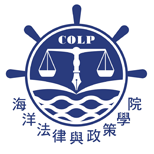Project Overview
Key Factors and Feasibility Analysis for the Development of Taiwan's High-End Shipping Services
1. Commissioning Unit
Institute of Transportation, Ministry of Transportation and Communications
2. Execution Period
February 22, 2021 – December 31, 2021
3. Project Budget
NT$ 1,540,000
4.Project Overview
Taiwan has long relied on international trade and has become a significant global shipping nation. The country’s economic and trade development, national interests, and security are closely tied to the ocean. As the world’s 17th-largest trading nation, Taiwan depends on international shipping for economic prosperity. Due to its lack of natural resources, Taiwan heavily relies on importing bulk raw materials while exporting finished and semi-finished products primarily via sea or air transport. Among these, maritime transport accounts for over 98% of Taiwan’s external trade, with container shipping playing the most critical role. As a result, maritime transport is regarded as Taiwan’s economic lifeline.
In 2001, Taiwan's government published its first Ocean White Paper, officially declaring the country a marine nation. This was followed by the establishment of the National Ocean Policy Guidelines in 2004, reaffirming Taiwan’s maritime identity. In 2006, the Ocean Policy White Paper further solidified this vision by outlining policies on marine rights, environmental protection, maritime security, ocean industries, marine culture, and talent cultivation. In 2008, the government introduced the Blue Revolution – Marine Power Strategy, emphasizing Taiwan's goal to become a leading maritime nation. Additionally, in 2017, the Ministry of Education released the Marine Education Policy White Paper, focusing on nationwide marine education and talent cultivation for the maritime industry.
Following the establishment of the Ocean Affairs Council in 2019, the government proposed three key maritime development policies: "Enhancing marine legislation", "Promoting the marine industry", and "Strengthening marine research capacity."
In 2020, the Ocean Affairs Council introduced a new version of the Ocean Policy White Paper, while the Ministry of Transportation and Communications launched its 2020 Transportation Policy White Paper, both underscoring the importance of the shipping industry to Taiwan. Therefore, developing and utilizing the maritime industry remains a national policy priority.
Since the 1970s, Taiwan has used international trade to drive economic transformation, with container shipping serving as the primary means of transport. Taiwan currently operates seven international commercial ports: Keelung, Suao, Hualien, Kaohsiung, Anping, Taichung, and Taipei.
Taiwan’s strategic geographic location places its ports at the center of the Asia-Pacific region, connecting Northeast Asia to the north, Southeast Asia to the south, the Americas to the east, and China to the west. Additionally, Taiwan’s strong economic and technological capabilities, particularly in high-tech manufacturing and information technology, contribute to stable import and export trade volumes.
From a spatial perspective, major ports such as Taichung Port and Kaohsiung Port are located near industrial zones and have vast surrounding land, making them ideal for logistics, transshipment, and container operations. These advantages support the development of trade zones and export-processing industries, further enhancing Taiwan’s competitiveness.
Given the intensified global competition among ports, Taiwan’s maritime and port industry must continuously enhance its international competitiveness. Strengthening the maritime industry as a whole is crucial to boosting Taiwan’s shipping sector. Within the shipping industry chain, the core sector involves cargo transportation, including shippers, shipping companies, and port services. Meanwhile, high-end maritime professional services (MPBS) play a supportive role, ensuring the smooth operation of the shipping and port industries.
High-end maritime professional services are characterized by high intellectual intensity, advanced technology integration, high capital investment in human resources, high added value, strong industrial influence, and open market access with high entry barriers. The purpose of MPBS is to provide specialized maritime business services, supporting the overall maritime industry chain.
To enhance shipping industry competitiveness, major global ports such as London, Singapore, Hong Kong, and Rotterdam have shifted from traditional shipping hubs to knowledge-based high-end maritime services. By developing MPBS, these cities have strengthened their shipping industries, enhanced maritime economic growth, and solidified their positions as leading maritime centers.
For Taiwan to maintain its maritime leadership, it must accelerate the transformation of its shipping sector, integrate high-end maritime professional services, and align with global industry trends.
